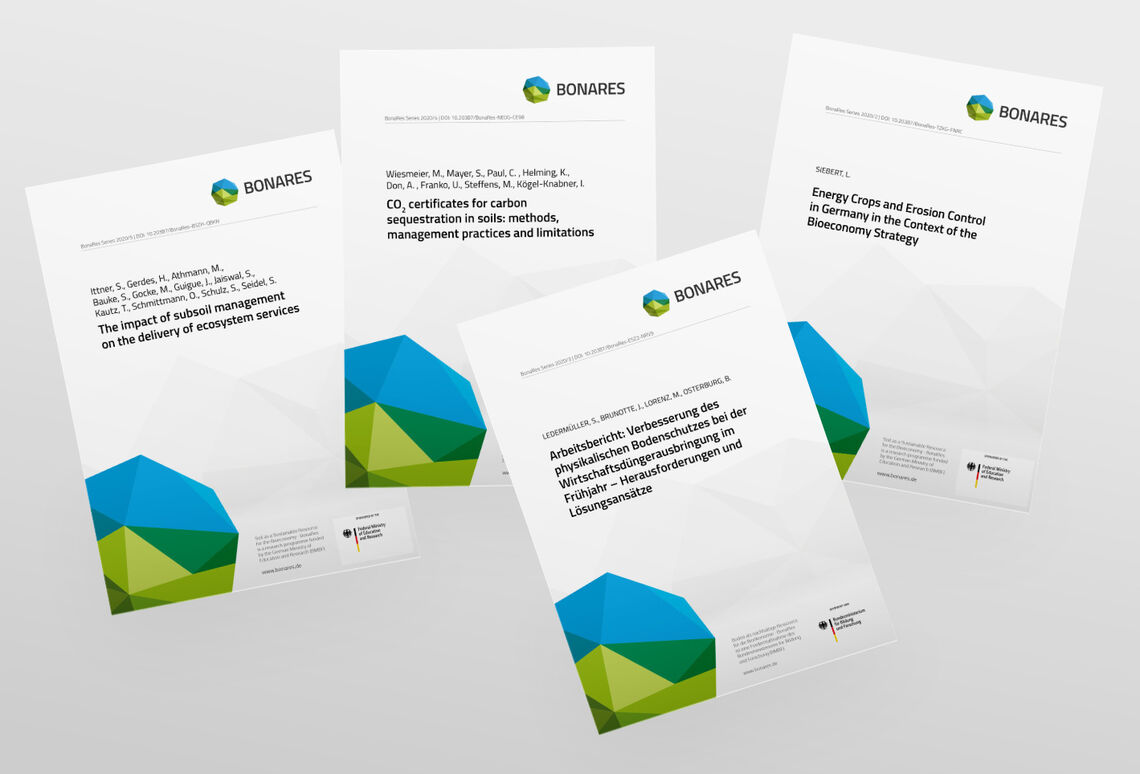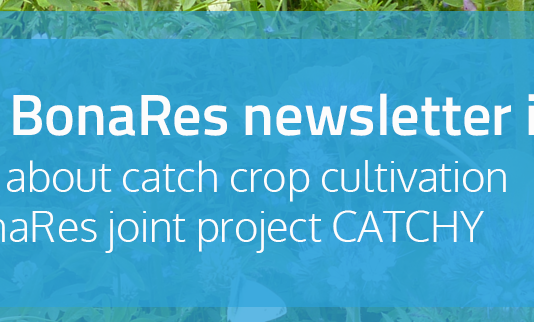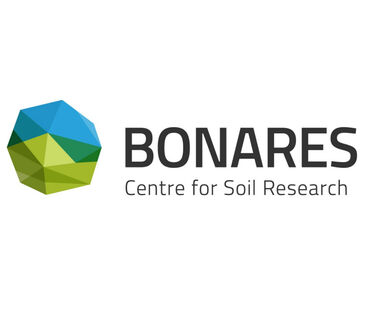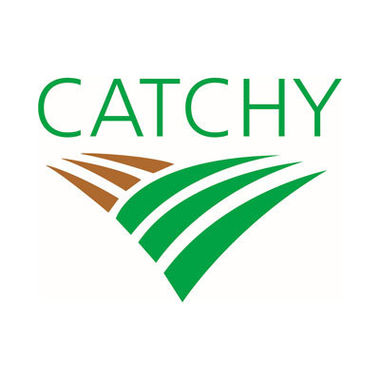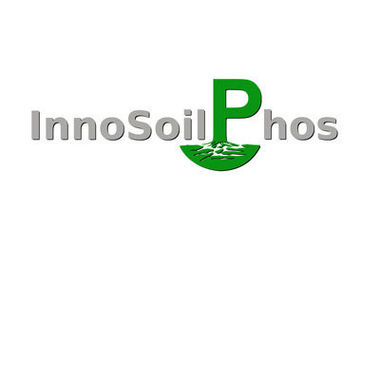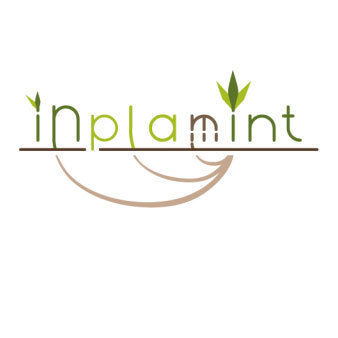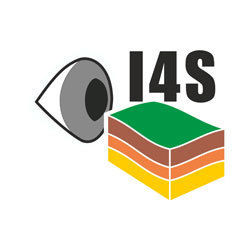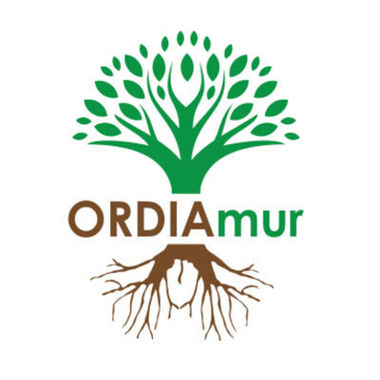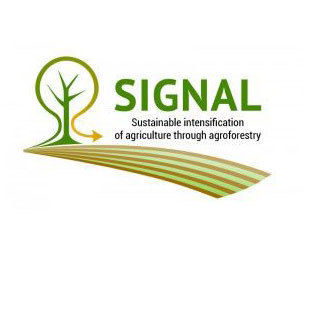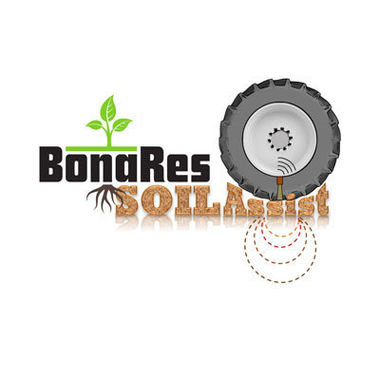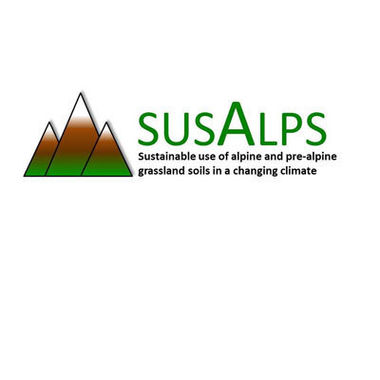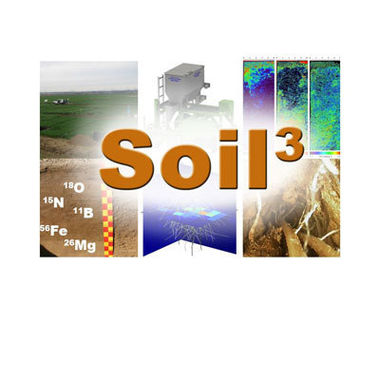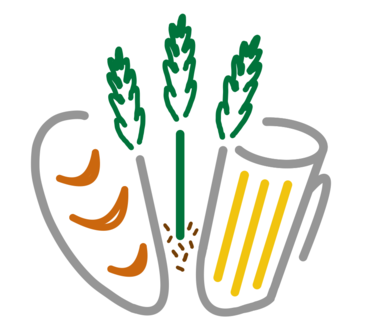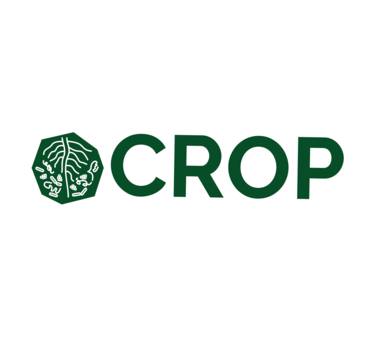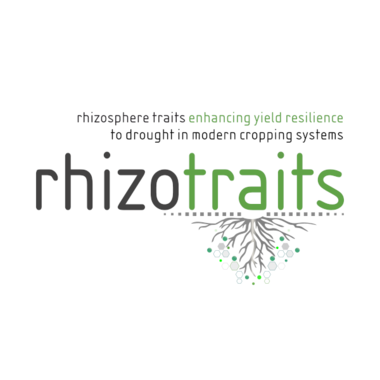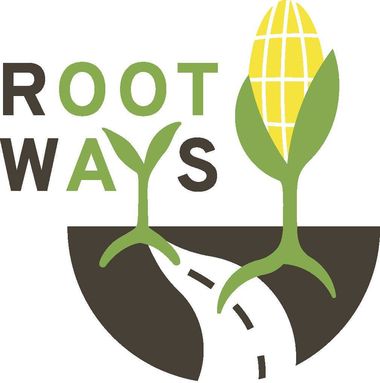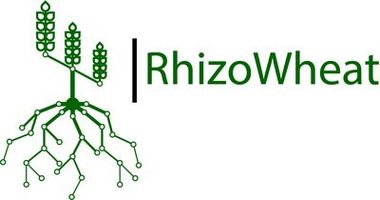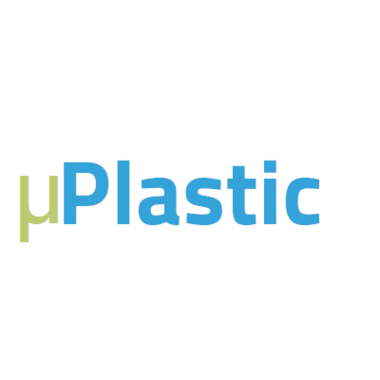Ongoing work to incorporate research results to this portal page.
Soil Functions & ESS
Soil functions & Ecosystem Services
A key objective of BonaRes was to predict the impact of agricultural management on key soil functions such as biomass production, nutrient recycling, water storage and filtering, carbon storage and habitat for biological activity. All these functions depend on a multitude of soil processes and their interactions which are sensitive to agricultural management practices and are differing for soils of different properties. This is why the assessment of soil functions needs to be done in a site-specific way.
The ultimate goal of BonaRes was to provide policy makers and farmers with scientifically sound information regarding agricultural management options and their impact on soil functions.
Climate Action
Soil & Climate change mitigation and adaptation
In Germany, agriculture contributes around 12% to total greenhouse gas emissions. These come predominantly from animal husbandry and the soil. Neither with current technology nor with the technology under development will it be possible to reduce these emissions to zero. For Germany to become climate neutral, we must actively remove carbon from the atmosphere. Plants can do this by taking CO2 from the air and splitting it into oxygen and carbon. If the carbon is stored long-term in the soil (humus), this counteracts climate warming. Soil organic carbon also improves soil health and helps to reduce the negative effects of climate change on agriculture. Soil organic carbon build-up is thus a measure for climate change mitigation and adaptation.
Food Security & Resource Efficiency
Soil and Resource Efficient Production
Plants use their comprehensive root system to absorb water and nutrients from the soil. Nutrients are derived from fertilization and especially from decomposed organic matter. The art of circularity oriented agriculture is to optimize tillage practices, fertilization and crop rotation choices towards improved soil structure, soil life, organic matter dynamics and root growth. The goal is to make the supply of water and nutrients to the plant roots as efficient as possible. The better the soils are prepared for this, the fewer external resources, such as mineral fertilizers, are needed.
Soil & Biodiversity
Habitat for Biological Diversity
Most of the biodiversity of agricultural systems resides in soil. The interactions among soil organisms have large effects on the quality of crops, the incidence of soil-borne plant and animal pests and diseases. Beneficial soil organisms have an essential role in agricultural productivity as they mediate nutrient cycling and soil organic matter dynamics, alter soil physicochemical properties and support plant growth. However, agricultural intensification is considered the main factor setting pressure on soil biodiversity. When confronted with future land use change, understanding the responses of soil biodiversity to different land use regimes is decisive for adequate land management. However, there is still an open question how consistently different soil organisms respond to land use intensification. Our research focuses on understanding and quantifying the functional role of soil fauna in agroecosystems as well as the effects of agricultural management on these organisms.
Filtering & Storage
Soil and Water Availability & Quality
Almost half of the volume of fertile soils consists of pores of different shapes and sizes. They are largely formed by the activity of soil organisms and by the roots of plants. The large pores ensure that even heavy precipitation can seep into the soil, while water is held in the smaller pores by capillary forces. This allows soils to store large amounts of water, which can ensure the survival of plants even during longer dry periods. Soils also ensure that precipitation does not immediately end up in rivers. Without soils, flooding would be commonplace. At the same time, the soil’s pore space provides room for an enormous number of soil organisms. These are able not only to decompose organic residues and make them available to plants again, but also to break down pollutants. When managed properly, this makes biologically active soil a very efficient water filter and a guarantor for clean groundwater.
BonaRes Products
Harvesting Knowledge
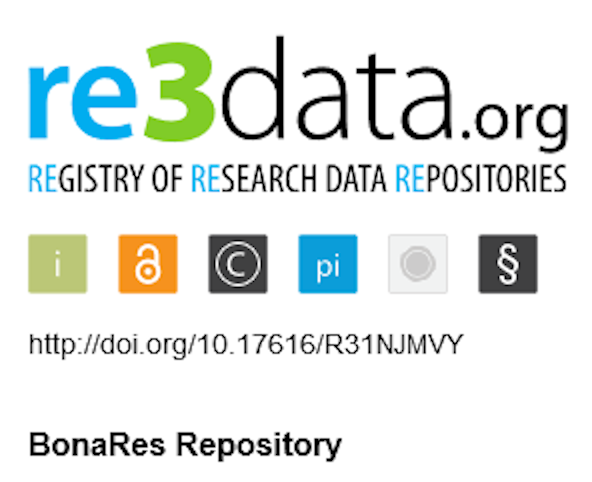
The BonaRes Repository is a free infrastructure for researchers to publish and find data related to soil, agriculture and ecology from Germany and the world.
#LTE-Data; #Soil Profile data;
#Data Reuse; #publish Data (DOI)
contact: dataservice@zalf.de
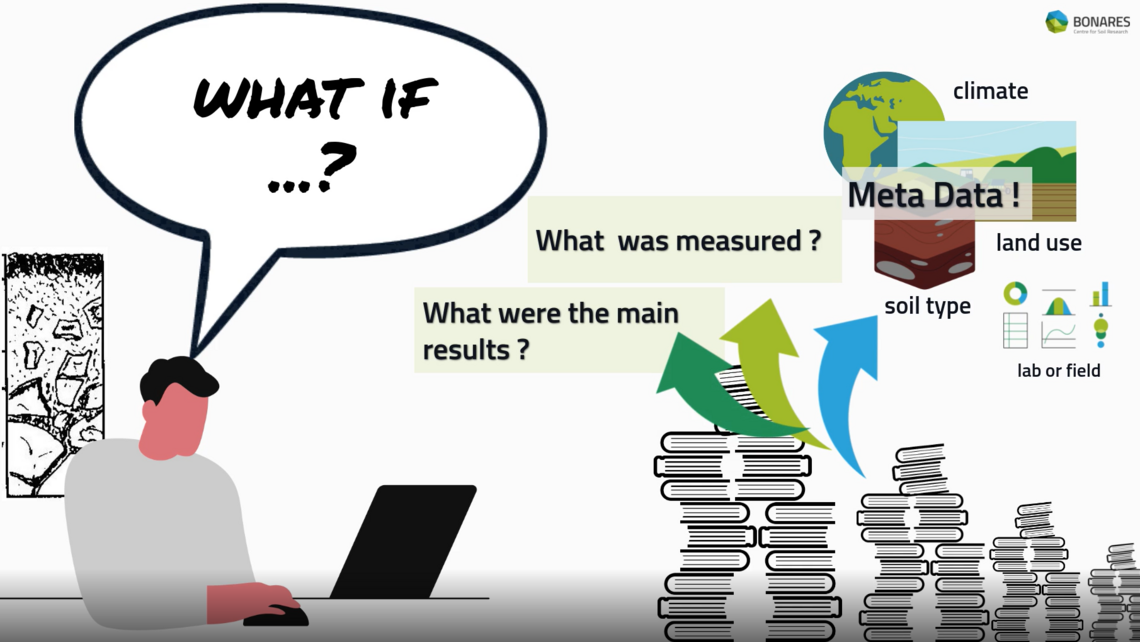
The KLIB is a library of publications in the field of soil science with the focus on soil process understanding.
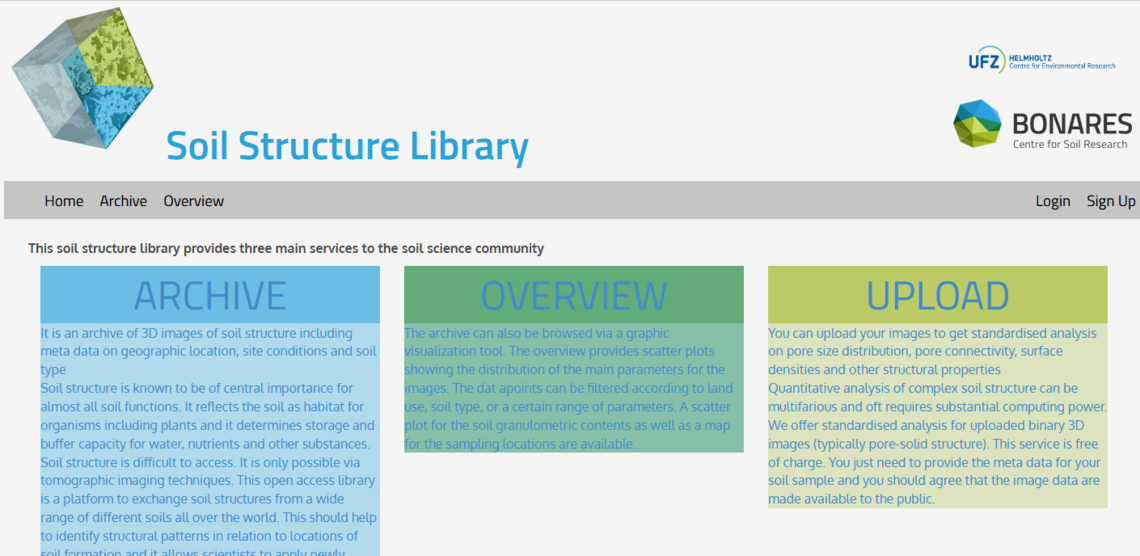
An archive of 3D soil structure images, with metadata detailing geographic location, site conditions, and soil type.
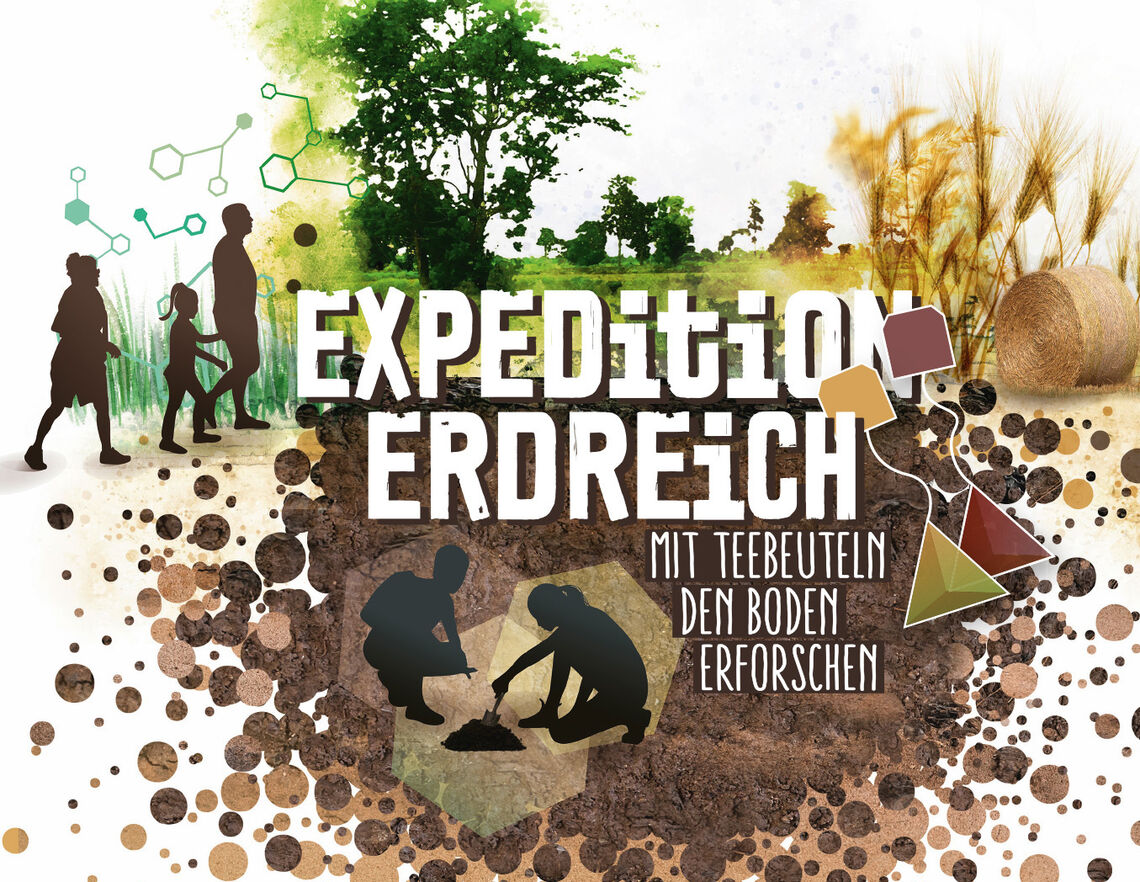
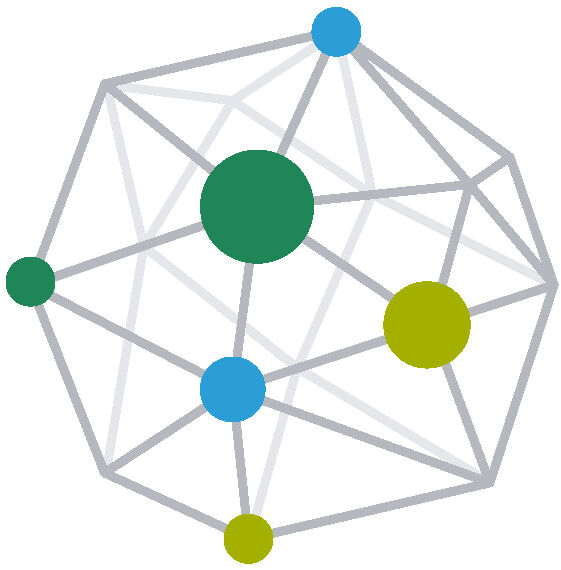
A systemic soil model that simulates the complex correlations between soil properties, climatic conditions, soil management and their interactions in the soil at the individual site.
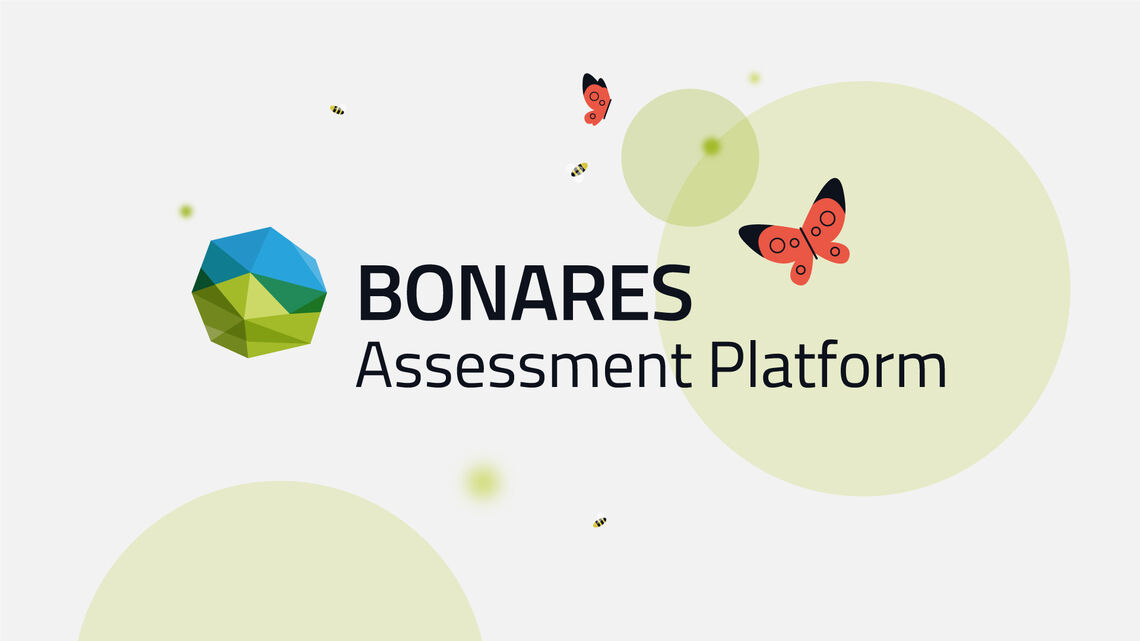
Support researchers in conducting state of the art impact assessments for evaluating effects of the management of soils and soil functions.
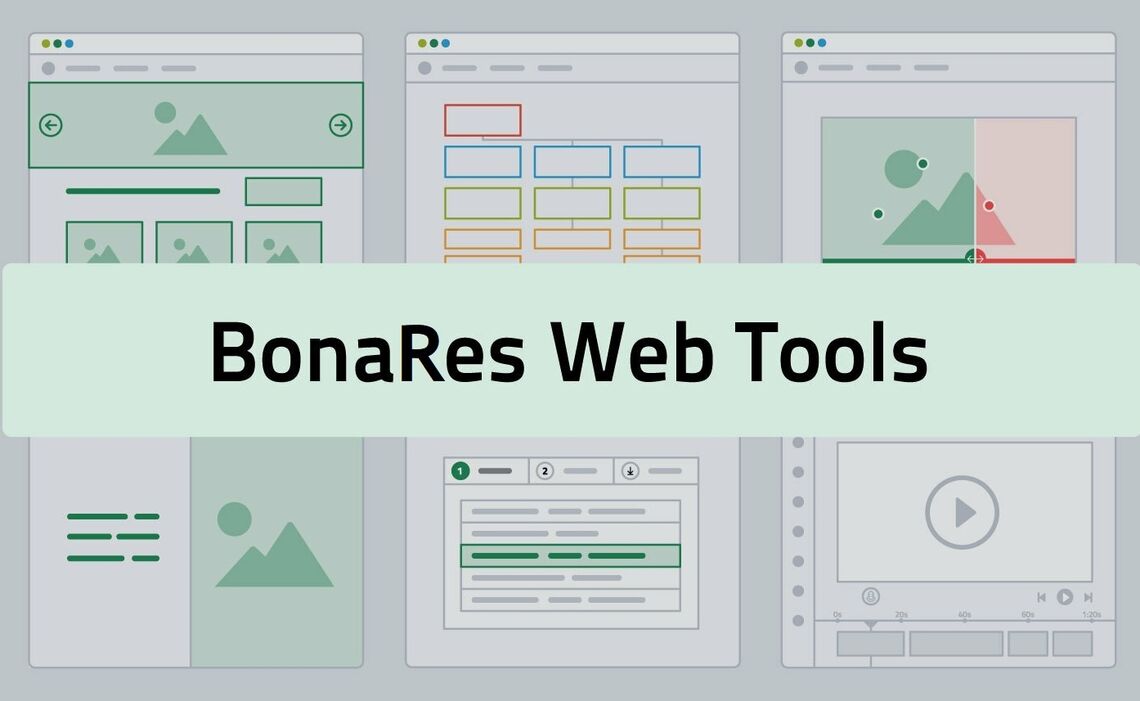
Designing your research results!
A set of easy-to-use tools and strategies dedicated to the scientists working in BonaRes projects.
Publications
Scientific Publications List, Reports, Factsheets, Booklets, Poster and Postcards
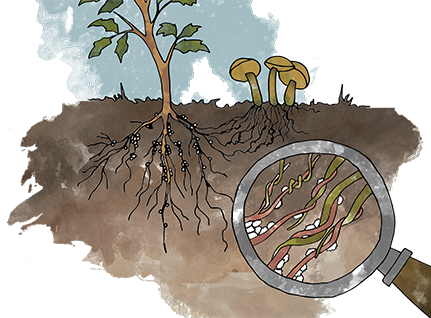
Factsheet, Booklets & more...
find booklet (ongoing work)
Assessed by an editorial process and Provided with DOI
An online publication hub. It's content is related to the field of “soil as a sustainable resource for the bioeconomy”.
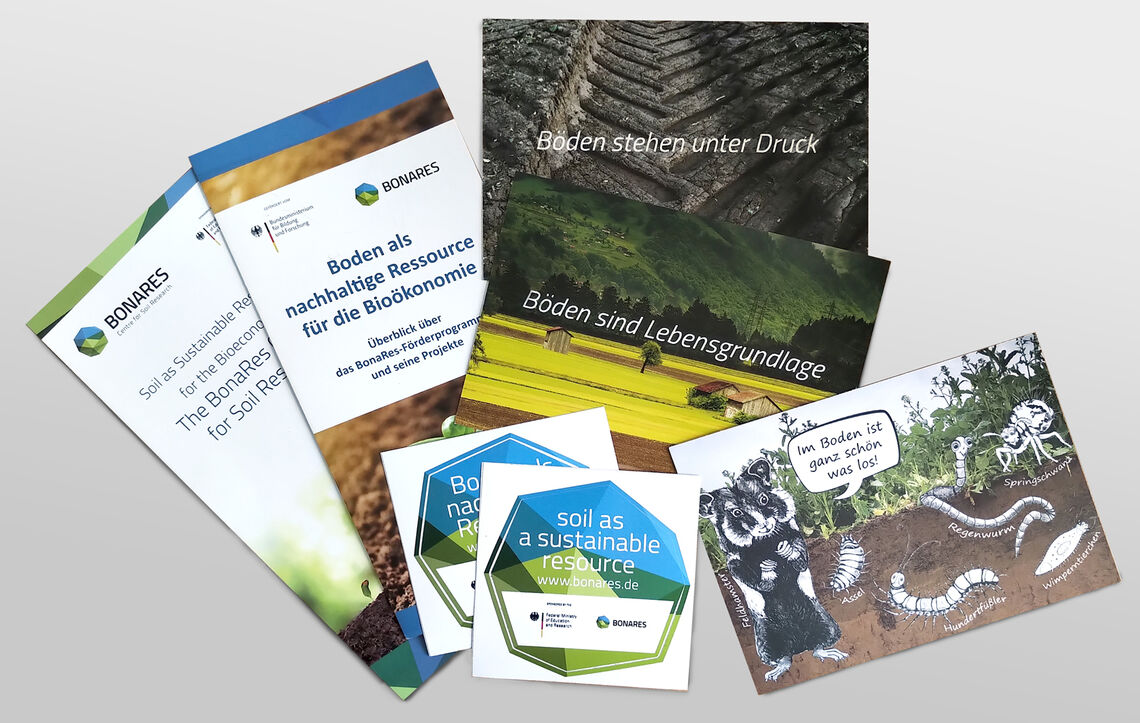
Find Info Material
Flyer, Postcards & Poster-Set
Send an E-mail to order materials free of charge to info@bonares.de.
Media
News, Newsletter, Events & Videos
Information on important issues and results of BonaRes research.
Projects
Information about all BonaRes & Rhizo4Bio Projects
BonaRes - BMBF funding initiative "Soil as a sustainable resource for the bioeconomy (BonaRes)": 10 interdisciplinary collaborative projects and the BonaRes-Centre
Rhizo4Bio - BMBF funding initiative "Plant roots and soil ecosystems, significance of the rhizosphere for the bio-economy": 6 collaborative projects

